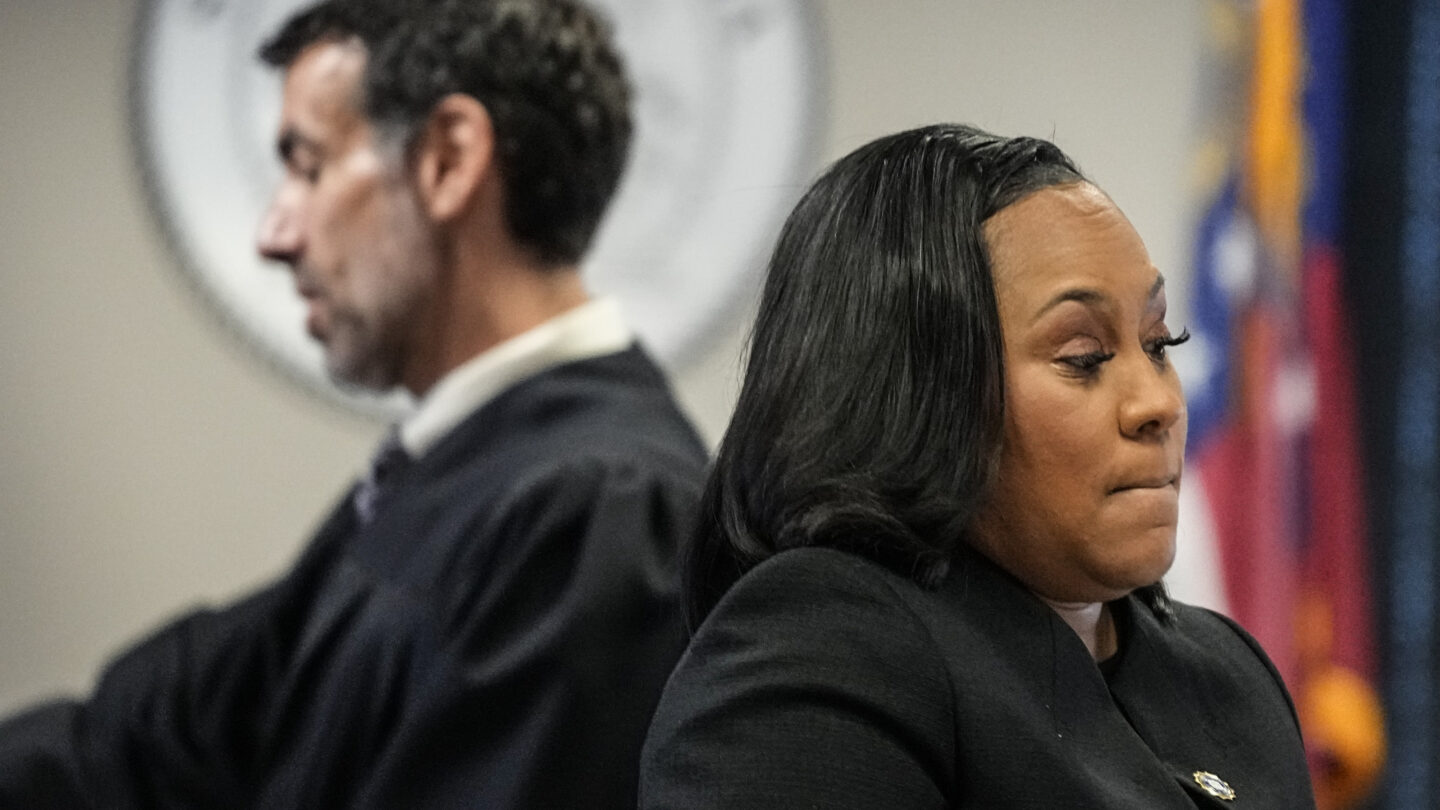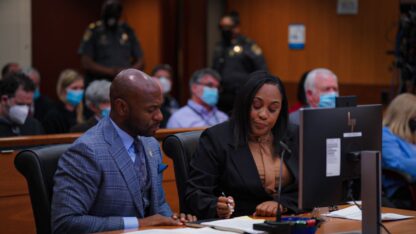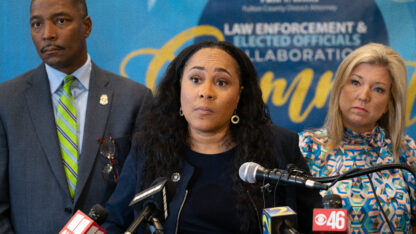This story was updated at 4:19 p.m.
The grand jurors who may be asked to indict former President Trump and some of his allies in Georgia later this summer have officially been seated.
Fresh grand juries were selected and sworn in Tuesday in Fulton County, where prosecutors have signaled they will seek criminal charges against politicians, lawyers and operatives who allegedly tried to overturn Donald Trump’s 2020 election loss in Georgia.
The two grand juries will each meet twice a week through the end of August and will weigh dozens of different criminal cases, ranging from burglary to aggravated assault and murder.
Fulton County District Attorney Fani Willis has suggested she will ask a grand jury this term to approve indictments stemming from her lengthy investigation into activities after the 2020 election — potentially entangling the former president. Her investigation was spurred in part by a January 2021 phone call, when Trump asked Georgia’s secretary of state to “find” him the number of votes he needed to win the state.
In a letter this spring, Willis requested court staff work from home on 10 grand jury days beginning July 31 for safety reasons and has told law enforcement to prepare heightened security.
Each grand jury has 23 members and three alternates. Unlike a trial jury, potential grand jurors are not questioned about biases, conflicts of interest or personal opinions before they are seated — though they are instructed to recuse themselves from individual cases if they have a direct conflict.
Jurors need to be a citizen of Georgia above age 18 and must have lived in Fulton County for at least six months. Jurors cannot be convicted felons who have not had their civil rights restored or have been determined by a court to be mentally incompetent.
Potential jurors can be excused by a judge if they have a hardship that would prevent their service, like being the sole caregiver for a child.
The 96-person jury pool included an artist, an investigator, a teacher, a homemaker, an explosives prevention dispatcher and a retired firefighter. The final panels were roughly half men and half women.
Fulton County Superior Court Judge Robert McBurney presided over the hourslong process and administered the oath, with Willis looking on. The jurors were mostly hidden behind a wall, out of view of the media gathered in a utilitarian jury assembly room.
“You need to remain diligent as you do this,” McBurney told the jurors after they were formally sworn in. “What goes on in that grand jury room is secret… And finally, it’s important that you base your decision on the facts as you find them.”
Once the grand jury begins hearing cases later this week, prosecutors need to convince at least 12 jurors there is a reasonable basis to issue an indictment or “true bill” and move forward with a trial. Sixteen jurors are needed for a quorum. Jurors do not hear from the accused at this point — just prosecutors and any witnesses they bring in to help present their case.
“The test right now isn’t guilt or innocence,” McBurney told jurors. “You are making a very narrow decision and that is whether there is probable cause to believe that the person named in the indictment committed the crime or crimes set forth in the indictment.”
No specific cases were mentioned during jury selection, though the district attorney’s office met with the grand juries behind closed doors for about 45 minutes.
Willis and her team have been investigating efforts by Trump and his allies to pressure local election officials and submit a false slate of presidential electors, among other activities. This spring, a special grand jury empaneled to help conduct the investigation recommended multiple indictments after a monthslong probe.








